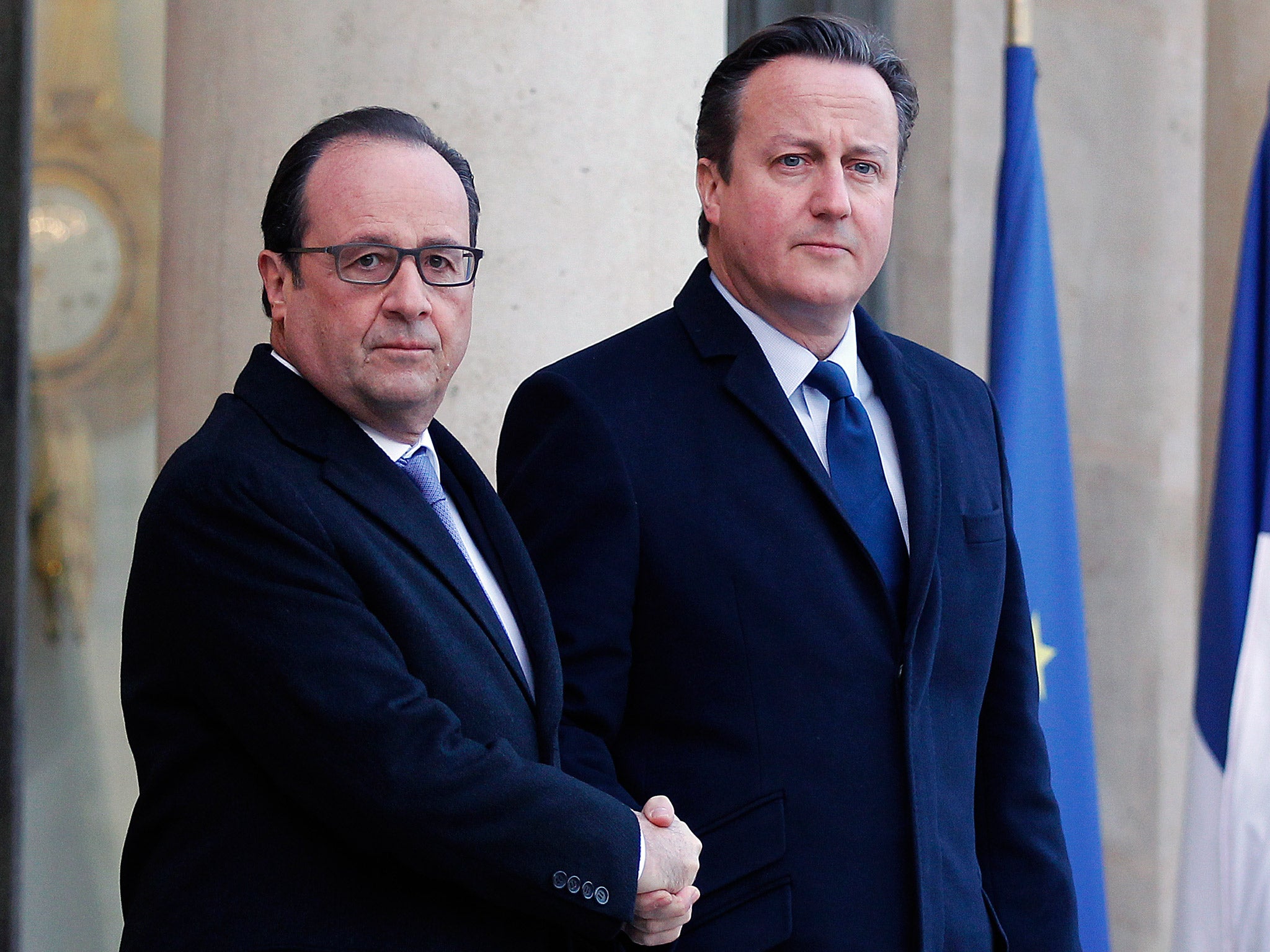With Brexit threat casting a shadow, the delicate relationship between Britain and France requires care
The Brexiters should reflect on at least one lesson from the first day of the battle of the Somme on 1 July 1916

Your support helps us to tell the story
From reproductive rights to climate change to Big Tech, The Independent is on the ground when the story is developing. Whether it's investigating the financials of Elon Musk's pro-Trump PAC or producing our latest documentary, 'The A Word', which shines a light on the American women fighting for reproductive rights, we know how important it is to parse out the facts from the messaging.
At such a critical moment in US history, we need reporters on the ground. Your donation allows us to keep sending journalists to speak to both sides of the story.
The Independent is trusted by Americans across the entire political spectrum. And unlike many other quality news outlets, we choose not to lock Americans out of our reporting and analysis with paywalls. We believe quality journalism should be available to everyone, paid for by those who can afford it.
Your support makes all the difference.David Cameron and François Hollande will meet today in the Somme region. The choice of the venue for the annual Anglo-French summit is, depending on Euro-political viewpoint, poignant or crass. Almost a century ago, on 1 July 1916, the British and French armies attacked side-by-side for the first time in the 1914-1918 war. The battle of the Somme lasted until November and caused 1,100,000 British, French and German casualties, including 400,000 deaths – the bloodiest battle of an appalling war.
Just over a week before the centenary of the Somme this summer, the British people will decide whether or not they wish to remain in the European Union. Circular argument rages over the role of the EU in keeping the peace in western Europe for the past six decades. The French President and the British Prime Minister will probably enrage Eurosceptics today when they implicitly link Brexit and the Somme in the beautiful Commonwealth war cemetery in Pozières (a cemetery which happens to have many Australian, as well as British, graves).
Leave aside the clunking symbolism of this made-for-TV photo opportunity. The annual Anglo-French summit will follow in Amiens; senior ministers, as well as the two leaders, will talk and lunch. It is a good moment to reflect on what Brexit might mean for cross-Channel relations. In many ways, the two countries have never been so close.
There are over 300,000, mostly young, French people living in Britain. There are about 250,000, mostly middle-aged retired, British people living in France. Trade between the two countries has doubled since the establishment of the European Single Market in the 1990s – itself the creation of a French social democrat, Jacques Delors, and a British conservative, Lord Cockfield.
Many French companies – from the energy giant EDF to the Paris Metro, the RATP – now have important subsidiary operations in Britain. France is the fourth largest market for British exports. France and Britain are the two biggest diplomatic and military powers in the European Union. Mostly, they get on well. The French are often criticised (occasionally fairly) for their handling of the perpetual migrant crisis in Calais.
The fact remains that, for the past dozen years, French money and manpower have been expended to defend Britain’s border. How popular would that be in Britain if the situation was reversed?
All these things could, in theory, continue if Britain left the EU. The treaty which places the British border in Calais is bilateral. All the same, a political drumbeat is rising in France to demand the scrapping of this arrangement if the UK votes for Brexit.
A non-EU Britain would still buy Burgundy and Bordeaux wine, Renault cars and French footballers; the citizens of France would continue to purchase Scotch whisky and Japanese cars made in Britain. The impact of Brexit would not be obvious, more like an infinitely slow puncture. But an EU without Britain would increase the influence of the worst French instincts in Brussels – to the detriment of Britain and the detriment of France.
The rules governing free and fair competition within Europe are unpopular with French protectionists, of both the right and the left. They are already rubbing their hands at the thought of a Brexit, a posture they may come to regret. Any hope of extending the single market rules to financial services – to the great benefit of Britain – would vanish. A non-EU Britain may, or may not, gain wide access at a price to the single market in Europe. But without Britain, the single market might not survive in its present form.
The Brexiters should reflect on at least one lesson from the first day of the battle of the Somme on 1 July 1916. Along most of the British lines, the supremely confident British generals imposed their own go-it-alone tactics, which led to mass slaughter. In a small part of the battlefield the British infantry was backed by French guns and copied subtler French tactics. Cross-channel unity won the day.
Join our commenting forum
Join thought-provoking conversations, follow other Independent readers and see their replies
Comments